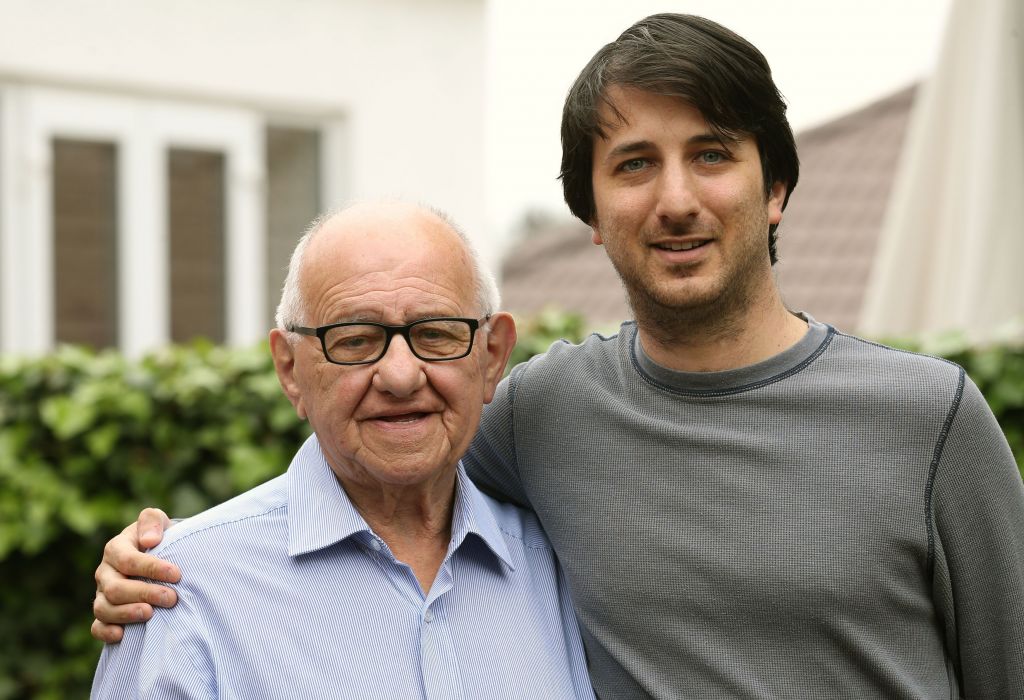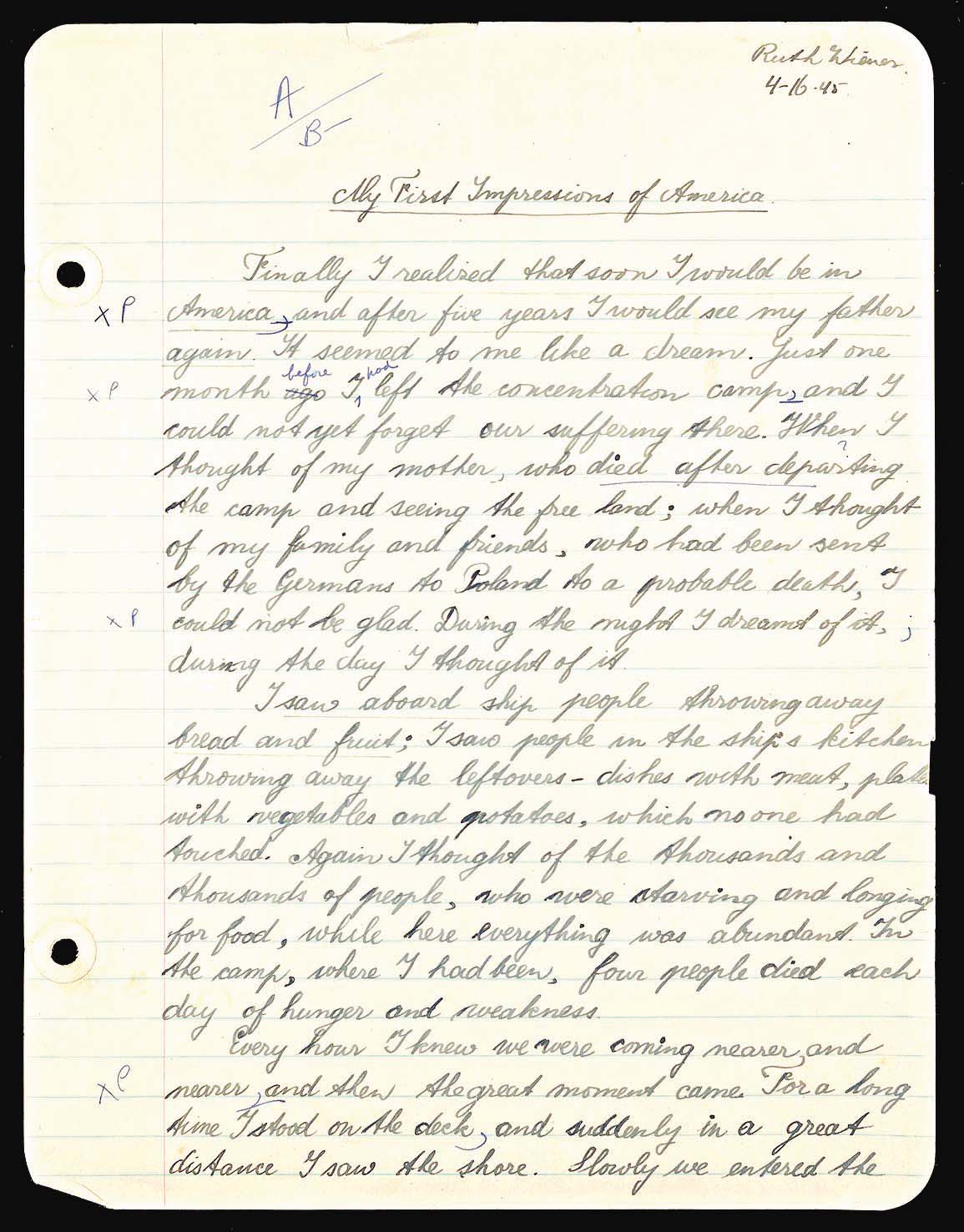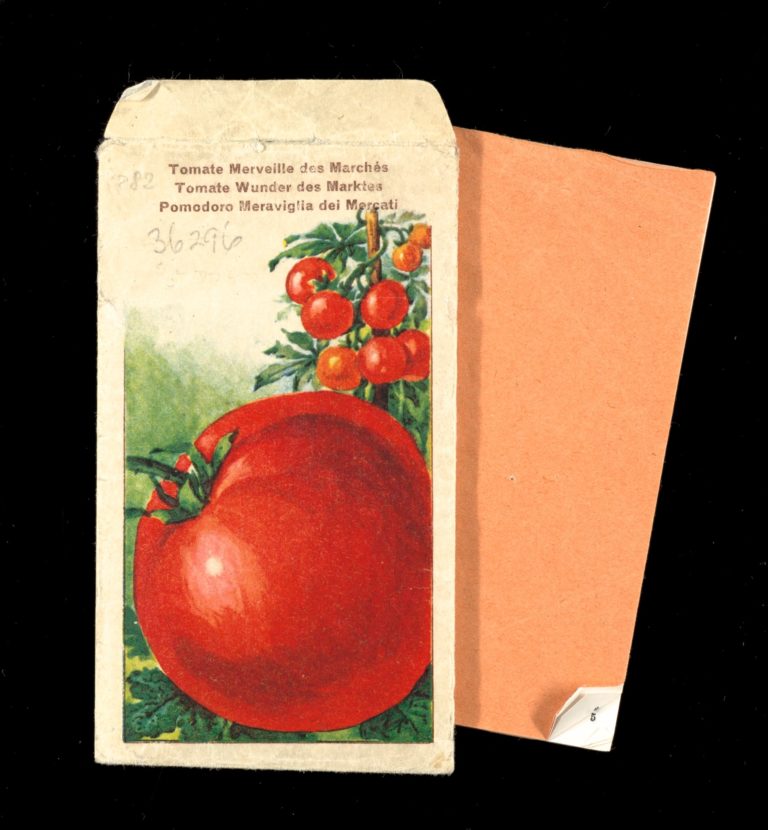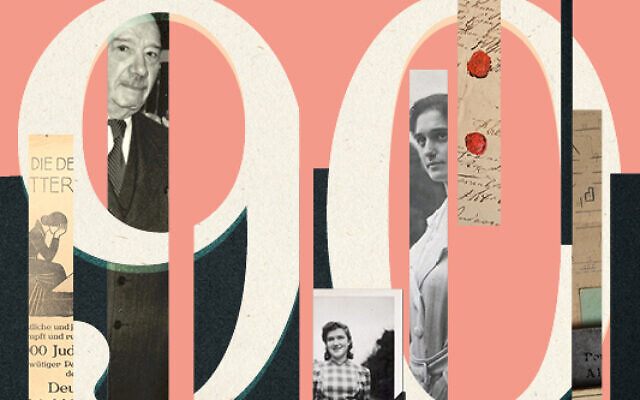Opinion: Truth can be lost in darkness and this institution does an admirable job of shining a light on one of the darkest periods in human history
Darren Richman, grandson of late Holocaust survivor Zigi Shipper at The Wiener Holocaust Library on it's 90th anniversary
When my late grandfather, Zigi Shipper, was convalescing in a children’s home in Germany after the war, he was surprised to receive a letter with a British postmark.
The correspondence was from a woman who had found his name on a Red Cross list and believed she was his mother, something he could confirm if he checked for a burn mark on his left wrist.
This simple communication, black words on a white background, invited Zigi to live in England and, ultimately, changed countless lives. I couldn’t help thinking of those words on a recent visit to the Holocaust Letters exhibition at the Wiener Holocaust Library with Zigi’s daughter (or, as I prefer to think of her, “mum”), my wife and my own daughter.

It would not be hyperbolic to suggest three of the four of us would not exist were it not for that particular piece of post and it seems somehow apposite that Zigi devoted his working life to running a stationery shop in the heart of London’s West End.
The Library, the world’s oldest institution devoted to the study of the Holocaust, was founded in 1933 as an information bureau that informed Jewish communities and governments worldwide about the persecution of the Jews. These days it boasts one of the most extensive archives on the Holocaust, the Nazi era and genocide.
It hosts a collection of over a million items including published and unpublished works, press cuttings, photographs and eyewitness testimony. Truth can be lost in darkness and this institution does an admirable job of shining a light on one of the darkest periods in human history.

The exhibition exploded the myth that Jews were somehow unaware of the scale of what was happening during those years. Letter after letter hummed with urgency as Jews attempted to warn their loved ones of the true spectre stalking Europe. Postcards and letters, the most everyday items imaginable, seem gargantuan in dimension when preserved for almost a century and meaning life or death to those on either end of the communication.
Zigi received word from his mother after the war having not seen her since early childhood but, as he insisted was the case with so many of the things in his life, he was lucky. Letters sent during the years of Nazi persecution had to be euphemistic, couched in vague language to avoid censorship.
One plea written by a Dr Hedwig Leibetseder to her family from within the confines of a Lichtenburg Concentration Camp, contains more power in just a few words than many novels do in hundreds of pages: “I love you, kiss and hug you. Stay brave and healthy. Emigrate. And write.”
Fourteen words since Dr Leibetseder knew better than anyone she could not afford to be verbose. Another of her letters, written in September 1938, reads: “I am prepared to tolerate hunger and despair and everything imaginable if only I could be together with the people whom I personally love and value.”

The message concludes with a list of items the doctor wants her family to pack but is cut short by an incision in the paper where the camp authorities have excised something clearly not to their liking.
Occasionally, it is clear throughout the collection, even coded language was not enough to escape the watchful eye of the oppressor. Dr Leibetseder lived well into her 80s while Zigi died earlier this year, on his 93rd birthday.
The letters housed in the Wiener Holocaust Library tell a story of resistance and defiance in the most hopeless of circumstances but also the individual decisions that can have repercussions felt through the decades; a tale of those who lived and those who did not.
Six million is an impossible number to compute and anything that helps us understand these victims were living, breathing people with hopes and dreams has value beyond words.
- Darren Richman is a writer and journalist
To mark the 90th anniversary of the founding of the Library’s predecessor organisation in Amsterdam, the Library is staging two exciting new exhibitions, The Wiener Library at 90: Highlights From the Archives and The Wiener Family Story. Click here for more information.

Thank you for helping to make Jewish News the leading source of news and opinion for the UK Jewish community. Today we're asking for your invaluable help to continue putting our community first in everything we do.
For as little as £5 a month you can help sustain the vital work we do in celebrating and standing up for Jewish life in Britain.
Jewish News holds our community together and keeps us connected. Like a synagogue, it’s where people turn to feel part of something bigger. It also proudly shows the rest of Britain the vibrancy and rich culture of modern Jewish life.
You can make a quick and easy one-off or monthly contribution of £5, £10, £20 or any other sum you’re comfortable with.
100% of your donation will help us continue celebrating our community, in all its dynamic diversity...
Engaging
Being a community platform means so much more than producing a newspaper and website. One of our proudest roles is media partnering with our invaluable charities to amplify the outstanding work they do to help us all.
Celebrating
There’s no shortage of oys in the world but Jewish News takes every opportunity to celebrate the joys too, through projects like Night of Heroes, 40 Under 40 and other compelling countdowns that make the community kvell with pride.
Pioneering
In the first collaboration between media outlets from different faiths, Jewish News worked with British Muslim TV and Church Times to produce a list of young activists leading the way on interfaith understanding.
Campaigning
Royal Mail issued a stamp honouring Holocaust hero Sir Nicholas Winton after a Jewish News campaign attracted more than 100,000 backers. Jewish Newsalso produces special editions of the paper highlighting pressing issues including mental health and Holocaust remembrance.
Easy access
In an age when news is readily accessible, Jewish News provides high-quality content free online and offline, removing any financial barriers to connecting people.
Voice of our community to wider society
The Jewish News team regularly appears on TV, radio and on the pages of the national press to comment on stories about the Jewish community. Easy access to the paper on the streets of London also means Jewish News provides an invaluable window into the community for the country at large.
We hope you agree all this is worth preserving.






















